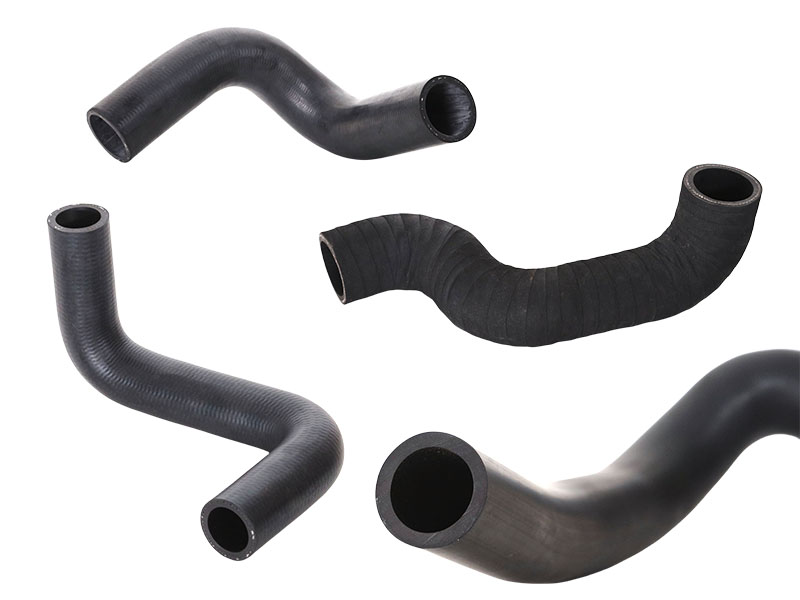What Are You Looking For?

Automotive rubber hoses are flexible tubes designed to carry liquids, gases, or air throughout the vehicle. From the engine to the transmission and HVAC systems, these hoses are responsible for transporting vital fluids, such as coolant, brake fluid, and fuel. Due to the harsh conditions they face—high temperatures, pressure variations, and exposure to chemicals—automotive rubber hoses are designed to be durable, flexible, and resistant to wear and tear.
Durability and Resistance to Extreme Conditions
Automotive rubber hoses are built to withstand the harsh environments within a vehicle. They are engineered to resist high temperatures, chemical exposure, and pressure fluctuations, ensuring they maintain their structural integrity and performance for an extended period.
Flexibility for Complex Routing
One of the major advantages of rubber hoses is their flexibility. This makes them ideal for use in areas with tight spaces or complex routing. Their ability to bend and stretch without breaking ensures proper installation and reduces the risk of damage during vehicle operation.
Chemical and Oil Resistance
Automotive hoses must be resistant to a wide range of chemicals, oils, and fuels. Choosing the right hose that can withstand exposure to these substances will prevent leaks, deterioration, and costly repairs. Materials like synthetic rubber are commonly used for their excellent chemical resistance.
Pressure and Temperature Tolerance
These hoses are designed to handle fluctuating pressures from various automotive systems, including fuel and engine cooling systems. Whether the system operates under high pressure or in cold conditions, the rubber hoses remain reliable without compromising vehicle safety.
Selecting the right automotive rubber hose for your vehicle is critical to ensure safety and efficiency. Here are the most important factors to consider when making your selection:
Temperature Range
Hoses must be able to perform in a wide range of temperatures, from high engine temperatures to cold weather conditions. When selecting a hose, ensure that it can handle the temperature extremes typical of your vehicle’s systems.
Correct Size and Fit
Size matters when it comes to automotive hoses. A hose that is too large or too small will not provide an efficient flow of fluids and could result in leaks or system failure. Always refer to your vehicle's specifications for proper hose dimensions.
Material Composition
Different rubber compounds have varying resistance properties. Nitrile rubber hoses, for example, are great for fuel systems due to their oil resistance, while EPDM rubber hoses are better suited for high-temperature systems like the engine cooling system. Choose the material based on the specific requirements of your vehicle's system.
Reinforced Hoses for Added Strength
Some automotive rubber hoses come reinforced with layers of fabric or steel wire to provide additional strength. These reinforced hoses are typically used in high-pressure systems to prevent bursting or failure.
To ensure the longevity and performance of your rubber hoses, regular maintenance is essential. Here are a few tips for maintaining your automotive hoses:
At JINHU, we provide high-quality customizable automotive rubber hoses designed for durability, flexibility, and resistance to harsh conditions. Whether you need hoses for fuel systems, cooling systems, or other automotive applications, we offer solutions tailored to your specific needs. Reach out to us today for expert advice and high-performance hoses that will keep your vehicle running smoothly.
If you need anything, please contact us,Customized different size/color/shape rubber products, making molds depending on your samples or drawings. FREE SAMPLES can be sent for your evaluation!
Over 20 years Professional Experience in Auto Accessories Field